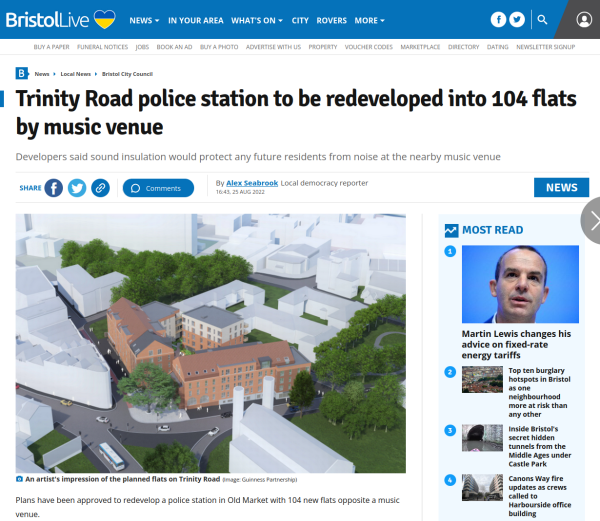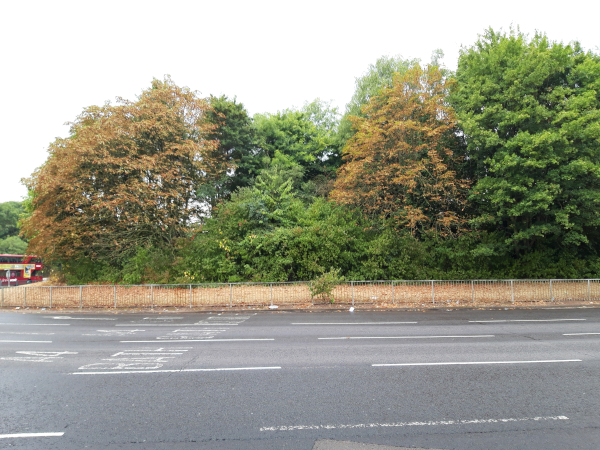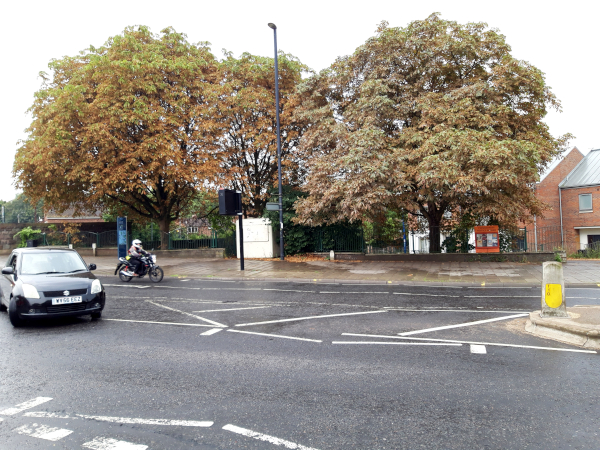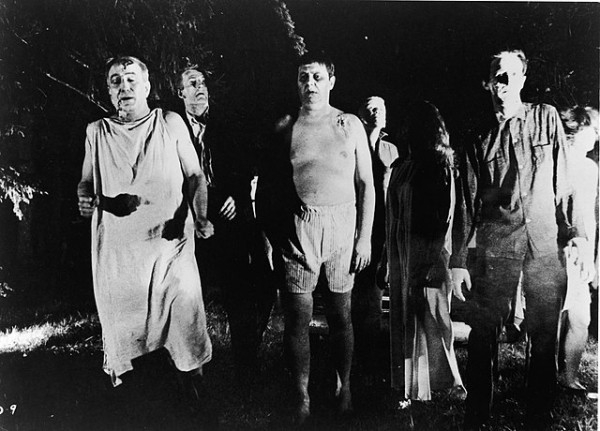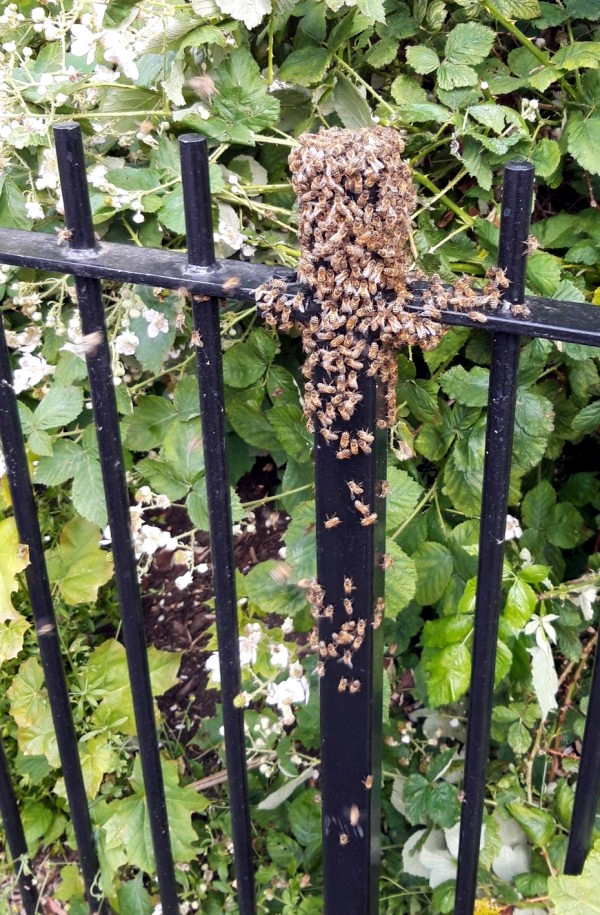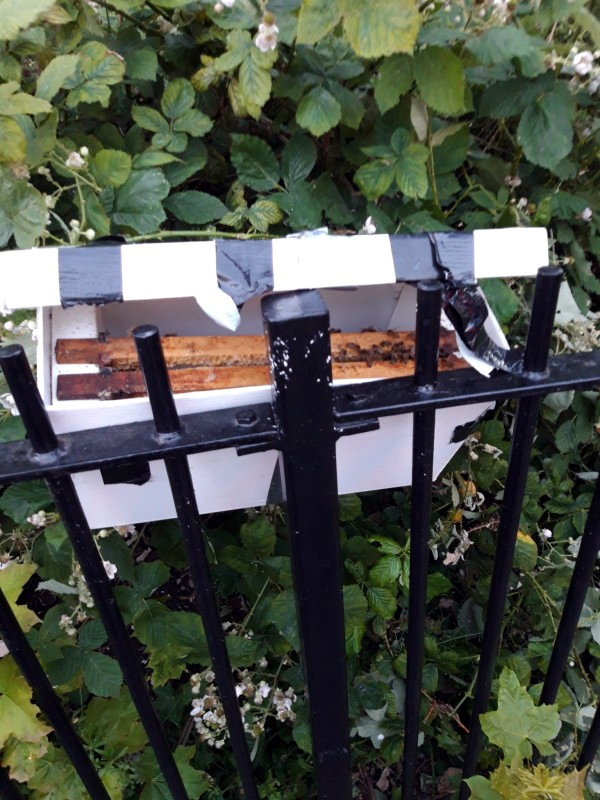Enforcement notices – a tale of two cities
Staying in Glasgow for a few days for my niece’s wedding, your correspondent cannot help comparing and contrasting the differences between how Glasgow and Bristol City Councils set about tackling the public nuisance and environmental crime of fly-tipping, particularly as regards the use of public notices for enforcement and dissuasion.
Exhibit A: the public notices used by Bristol City Council.
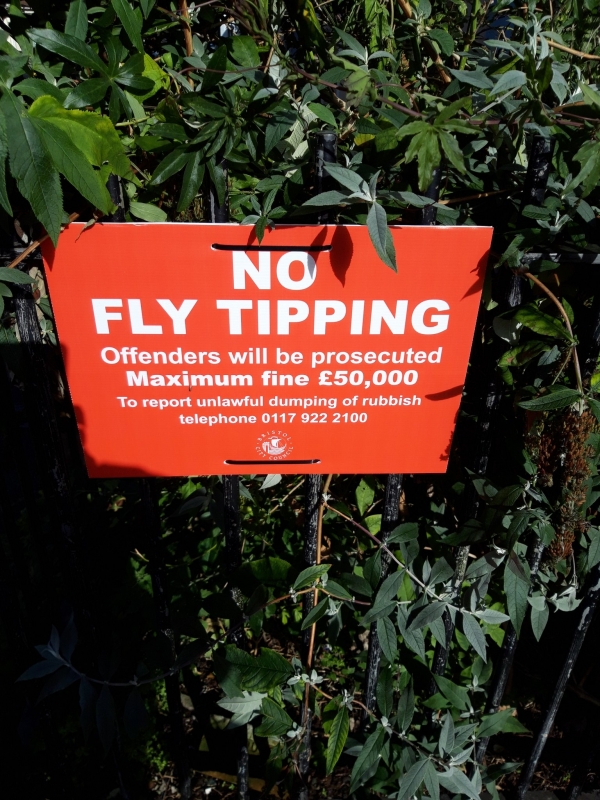
This is an A5-sized sign with no redeeming graces, which threatens the maximum possible fine under law of £50,000 (no mention of the alter#native maximum penalty of 6 months’ imprisonment or a combination of the two. Ed.). Should anyone feel public -spirited enough to fancy reporting any fly-tipping, the public is directed to the council’s main switchboard number, with no mention of the very convenient option of reporting fly-tipping online.
Exhibit B: a public notice used by Glasgow City Council, as seen in Holmlea Road.
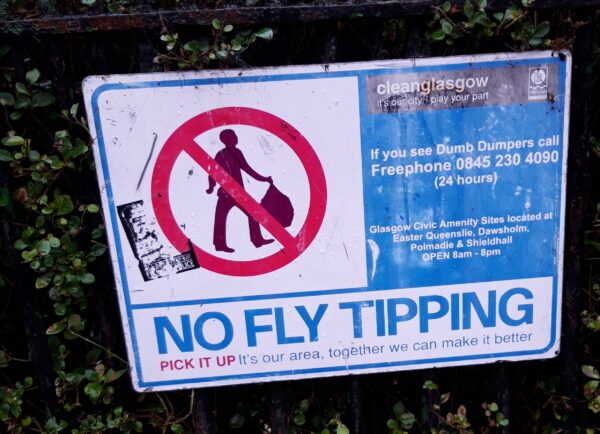
The initial difference is the size of the notice: at least A4 instead of A5, i.e. twice the size. There’s no mention of any maximum penalty, but residents are encouraged to report Dumb Dumpers via a 24-hour 0845 number. 0845 telephone numbers are “business rate numbers” (otherwise known as “non-geographical premium rate phone numbers“, for which the charge for mobile telephones and landlines is “up to 7p and your phone company’s access charge“. The UKPhoneIfo website warns that “charges for dialling 0845 numbers can be significantly higher – up to 41p per minute” when calling from a mobile number and that “when an 0845 number is called, the call recipient receives a small share of the call cost.” This number is a Scotland-wide number for reporting fly-tipping (there’s also a pan-Scottish Dumb Dumpers reporting website too, Ed.), in addition to which Glasgow City Council website also offers online reporting of fly-tipping and other environmental crimes.
Two more differences to Bristol are apparent: the locations of the council rubbish tips (civic amenity sites) are given in a further attempt to change anti-social behaviour, whilst finally residents are reminded that the state of the neighbourhood is their responsibility, as well as that of the council.
There are lessons that Bristol City Council could learn from Glasgow, as long as it ditches the not invented here attitude that seems to pervade the corridors of the Counts Louse.
One final note: even though the city is still being tidied up following the end of the recent Scottish bin collectors’ strike, your correspondent’s overall impression is that the streets of Glasgow are not as filthy as those of Bristol. Whether this is due to belittling and disparaging those who despoil the urban area as Dumb Dumpers has yet to be proven empirically, but is another tactic BCC could try, if so inclined.

